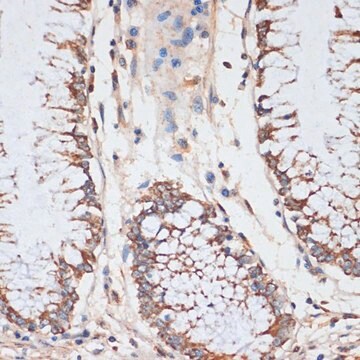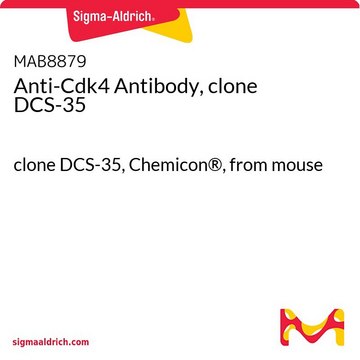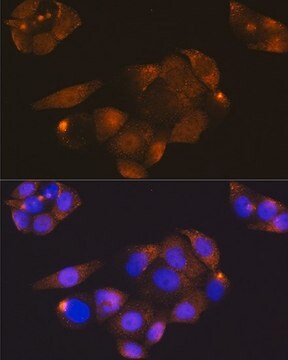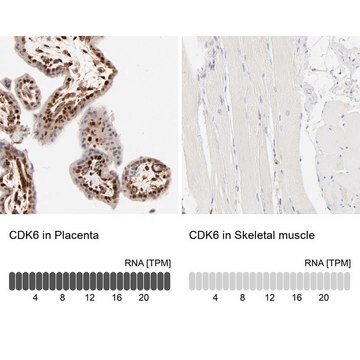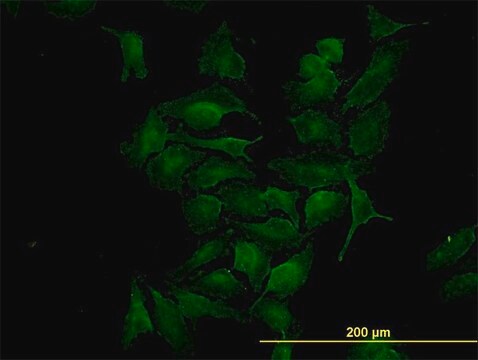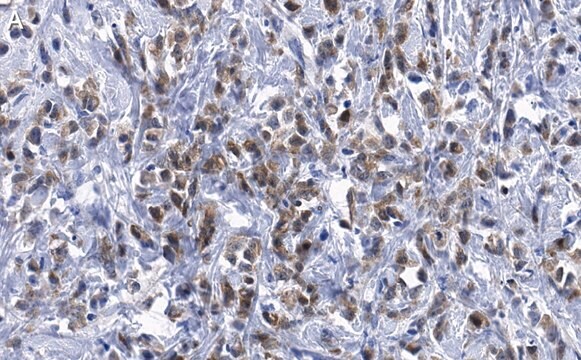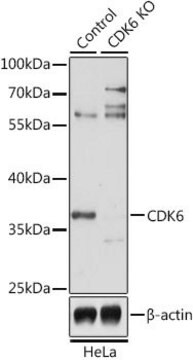Wichtige Dokumente
C8218
Monoclonal Anti-Cdk4 antibody produced in mouse
clone DCS-31, ascites fluid
About This Item
Empfohlene Produkte
Biologische Quelle
mouse
Qualitätsniveau
Konjugat
unconjugated
Antikörperform
ascites fluid
Antikörper-Produkttyp
primary antibodies
Klon
DCS-31, monoclonal
Mol-Gew.
antigen 33 kDa
Enthält
15 mM sodium azide
Speziesreaktivität
rat, mouse, human
Methode(n)
immunocytochemistry: suitable
immunoprecipitation (IP): suitable
microarray: suitable
western blot: 1:1,000 using a cultured human tumor cell line extract
Isotyp
IgG2a
UniProt-Hinterlegungsnummer
Versandbedingung
dry ice
Lagertemp.
−20°C
Posttranslationale Modifikation Target
unmodified
Angaben zum Gen
human ... CDK4(1019)
mouse ... Cdk4(12567)
rat ... Cdk4(94201)
Verwandte Kategorien
Allgemeine Beschreibung
Spezifität
Immunogen
Anwendung
- immunoprecipitation of human melanoma cell line.
- immunofluorescence of fibrosarcoma cells.
- western blot analysis
- immunofluorescence
- immunohistochemistry
Biochem./physiol. Wirkung
Haftungsausschluss
Sie haben nicht das passende Produkt gefunden?
Probieren Sie unser Produkt-Auswahlhilfe. aus.
Empfehlung
Lagerklassenschlüssel
10 - Combustible liquids
WGK
WGK 3
Flammpunkt (°F)
Not applicable
Flammpunkt (°C)
Not applicable
Hier finden Sie alle aktuellen Versionen:
Besitzen Sie dieses Produkt bereits?
In der Dokumentenbibliothek finden Sie die Dokumentation zu den Produkten, die Sie kürzlich erworben haben.
Artikel
Quantitative and qualitative western blotting to validate knockdown by esiRNA. Sigma-Aldrich.com
Unser Team von Wissenschaftlern verfügt über Erfahrung in allen Forschungsbereichen einschließlich Life Science, Materialwissenschaften, chemischer Synthese, Chromatographie, Analytik und vielen mehr..
Setzen Sie sich mit dem technischen Dienst in Verbindung.